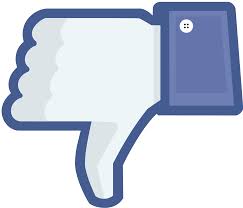 A new study from the Psychology Department at the University of Michigan, Ann Arbor found a dose-response relationship between Facebook use and subjective well-being (a well-studied variable that predicts a range of benefits including health and longevity.)
A new study from the Psychology Department at the University of Michigan, Ann Arbor found a dose-response relationship between Facebook use and subjective well-being (a well-studied variable that predicts a range of benefits including health and longevity.)
The more college students used Facebook, the worse their sense of self-reported well-being and the more their life satisfaction levels declined over time.
The study methods were straightforward: The researchers had a ready cohort of reliable Facebook users at the University of Michigan, where they recruited 82 students with the average age of 19.5. They text-messaged them five times per day for 14-days to track their Facebook use, well-being and life-satisfaction.
In the texts the researchers asked, "How do you feel right now?"; "How worried are you right now?"; "How lonely are you right now?"; "How much time have you interacted with other people 'directly' since the last time we asked?"; and "How much have you used Facebook since the last time we asked?" With this they were able to tease out Facebook's affect on well-being.
Ah, but you might ask, is there not a chicken-and-egg issue here? Researchers wondered the same thing, saying an "alternative explanation for these results is that people use Facebook when they feel bad." To compensate, they applied statistics to control for loneliness and depression, in essence removing feeling bad from the equation. "Neither worry nor loneliness interacted signficantly with Facebook use to predict changes in affective or cognitive well-being." In other words, people identified as worried or lonely were not necessarily the people who used Facebook more and felt worse.
One might also wonder if having a lot of Facebook friends made a difference; the answer was "no." Irregardless of the number of Facebook friends and independent of feelings of loneliness or low self-esteem, "The more people used Facebook over two-weeks, the more their life satisfaction levels declined over time."
The author's conclude: "The human need for social connection is well established, as are the benefits that people derive from such connections. On the surface, Facebook provides an invaluable resource for fulfilling such needs by allowing people to instantly connect. Rather than enhancing well-being, as frequent interactions with supportive "offline" social networks powerfully do, the current findings demonstrate that interacting with Facebook may predict the opposite result for young adults--it may undermine it."
Further Reading: Scientific American, "Scientists Show Facebook Is a Downer"